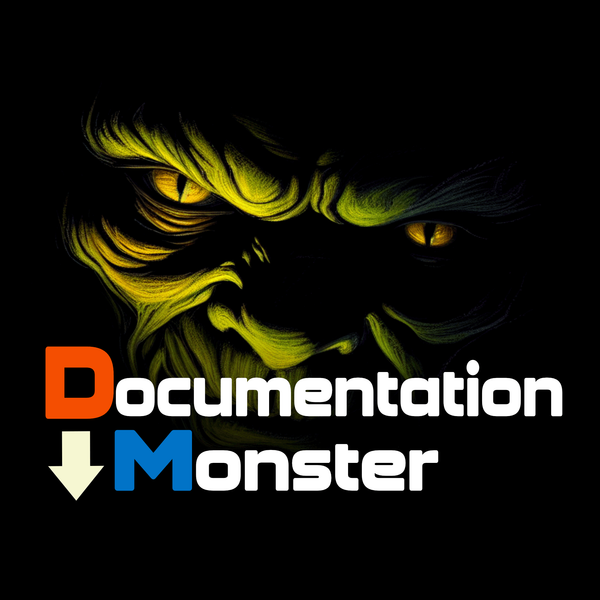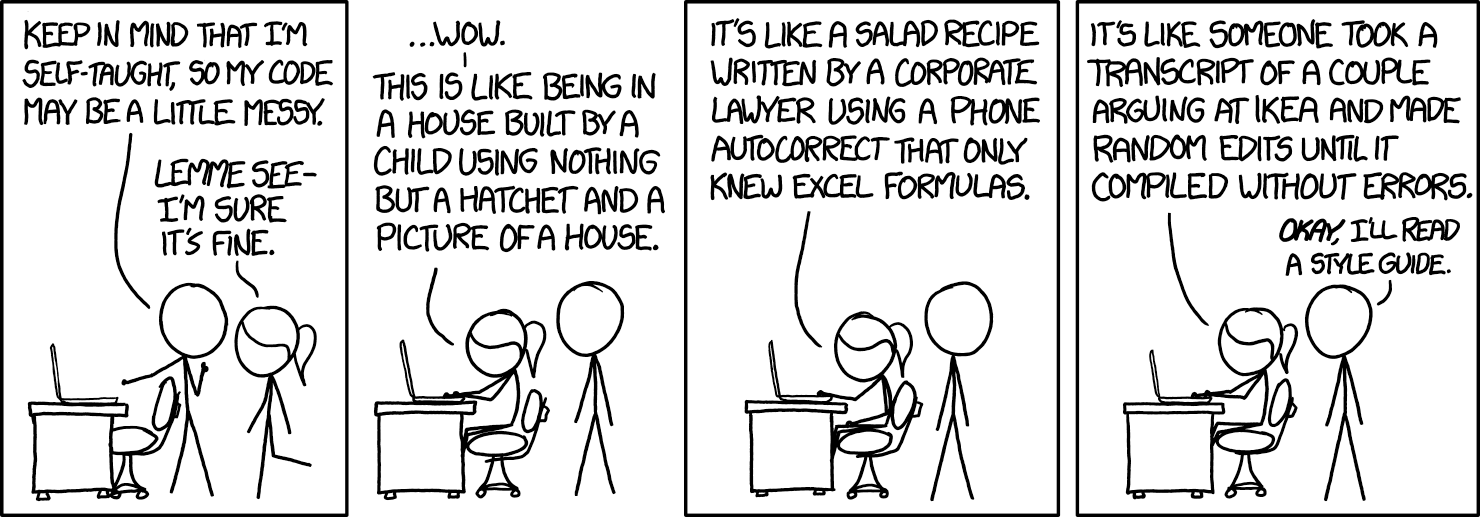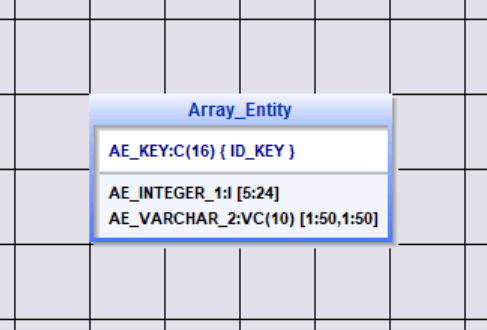Embarcadero AI CodeCamp 2025 – Day One Recap
Day One of Embarcadero's week-long **AI CodeCamp 2025** offered a packed lineup of presentations spanning foundational discussions to code-heavy demonstrations.
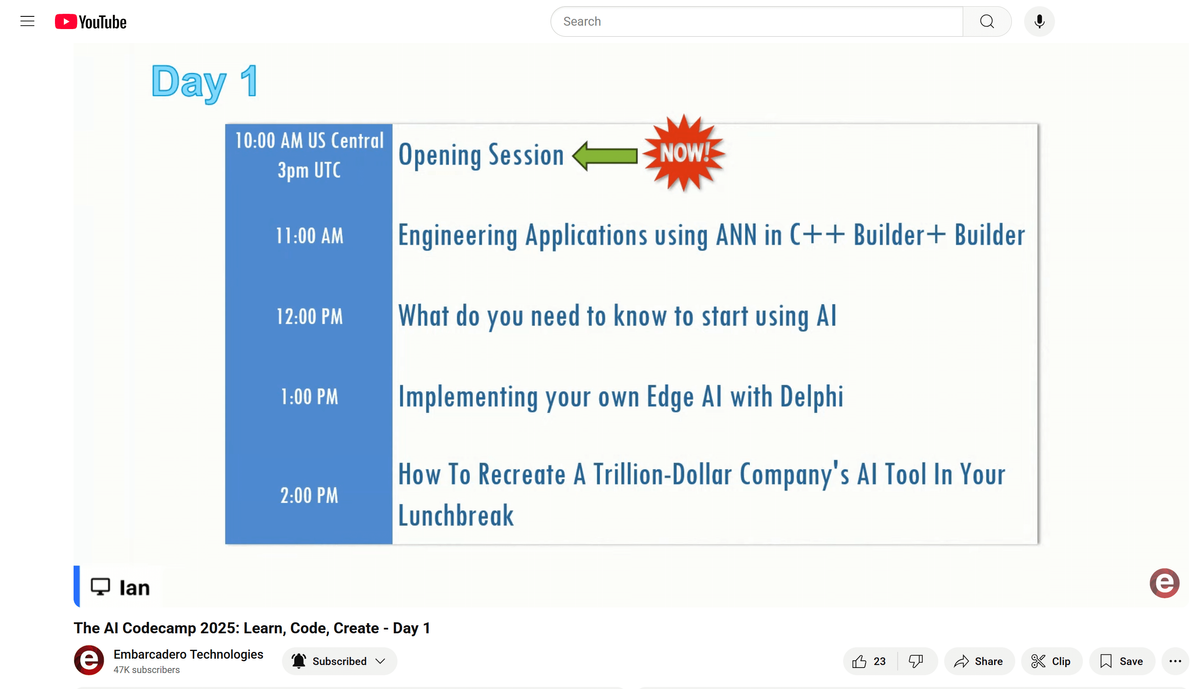
Published: June 16, 2025
Day One of Embarcadero's week-long AI CodeCamp 2025 offered a packed lineup of presentations spanning foundational discussions to code-heavy demonstrations. While the content varied widely in clarity, pace, and utility, several recurring themes emerged—namely the evolving role of AI in software development, its practical limitations, and its integration into Embarcadero tools and partner ecosystems.
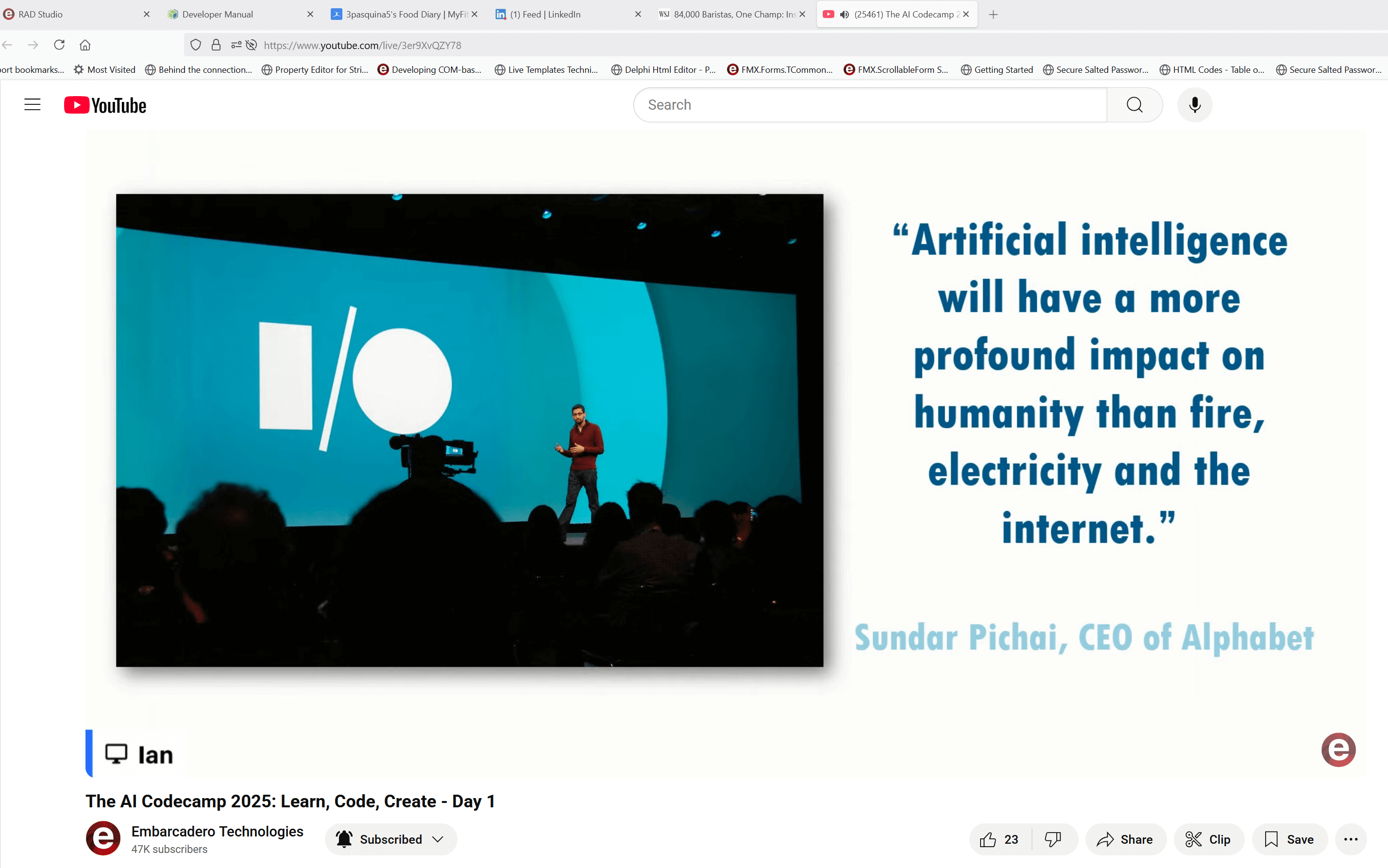
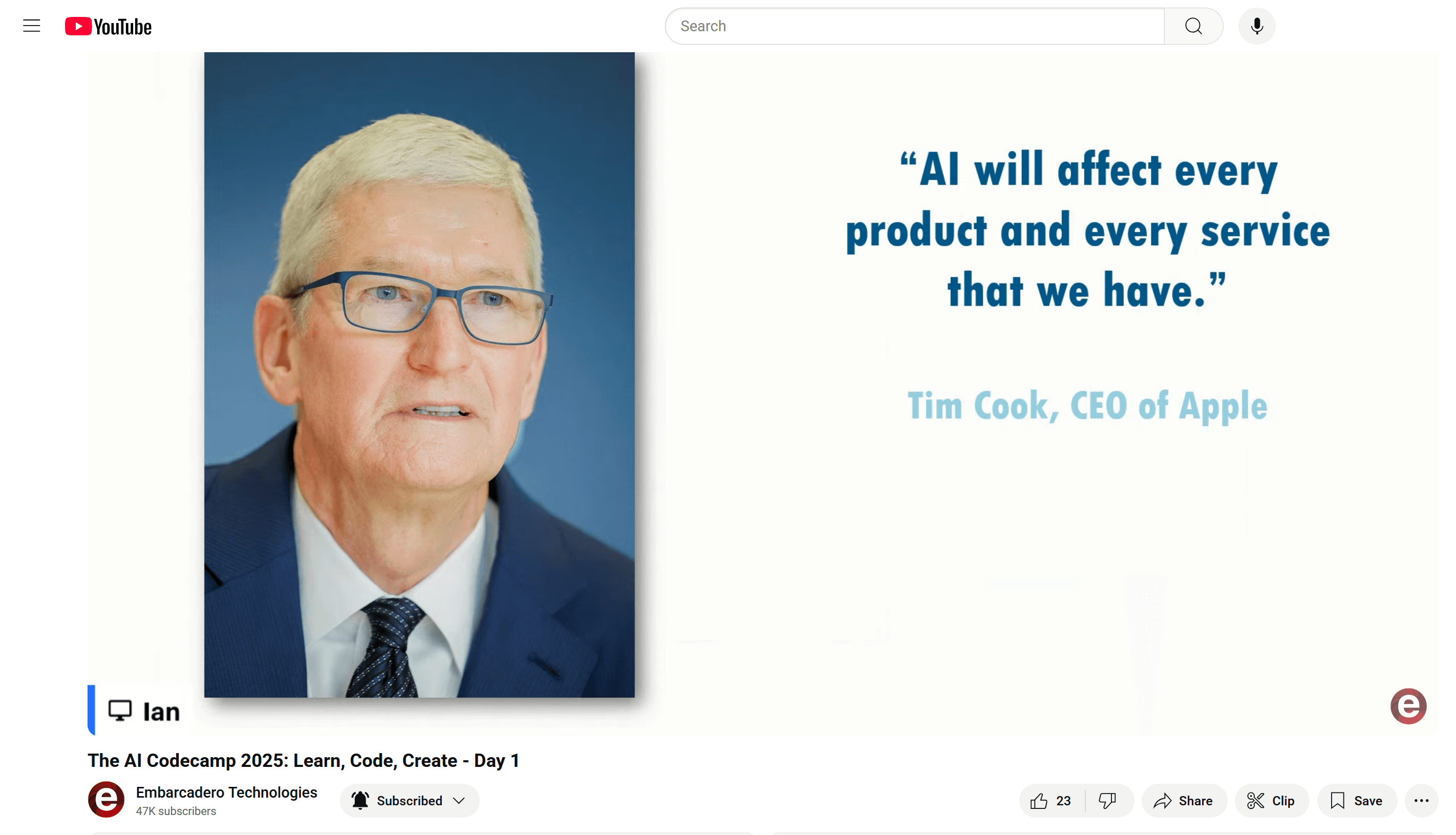
Some predictions by a couple of titans of the internet.
🧭 Opening Session: The Philosophical and the Promotional
The morning began with a foundational session by Ian Barker, offering philosophical musings and light technical content. Although the talk was peppered with references to COBOL, Match.com, and AI-generated images, much of it served as stage-setting rather than actionable instruction.
Key Takeaways:
- AI is often misunderstood and misrepresented.
- Major investments (e.g., Microsoft’s multi-billion-dollar stake) underscore how high the stakes have become.
- Some tools labeled "AI" are better described as Artificial User features—useful but not truly intelligent.
- RAD Studio features AI integrations, though detailed walkthroughs were lacking.
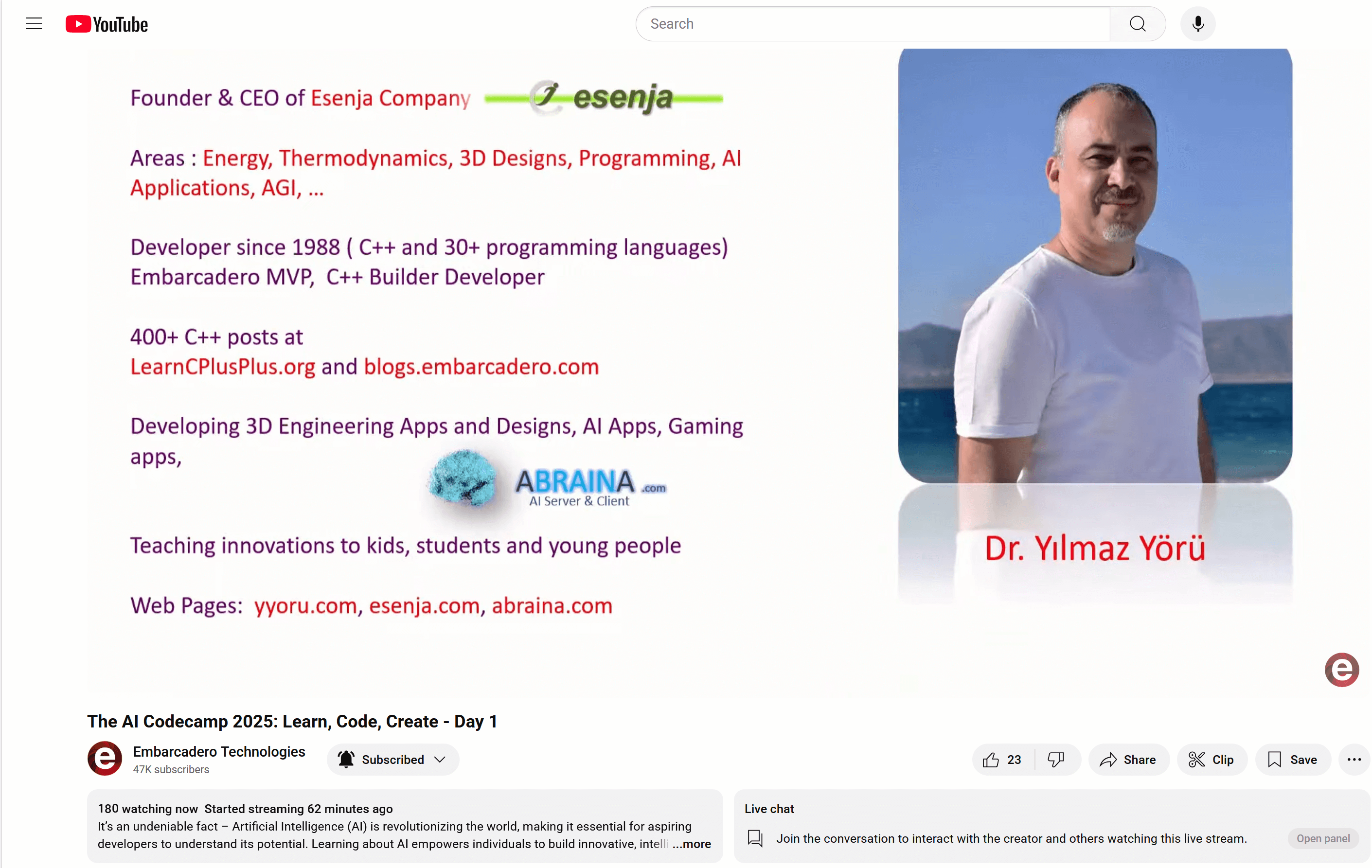
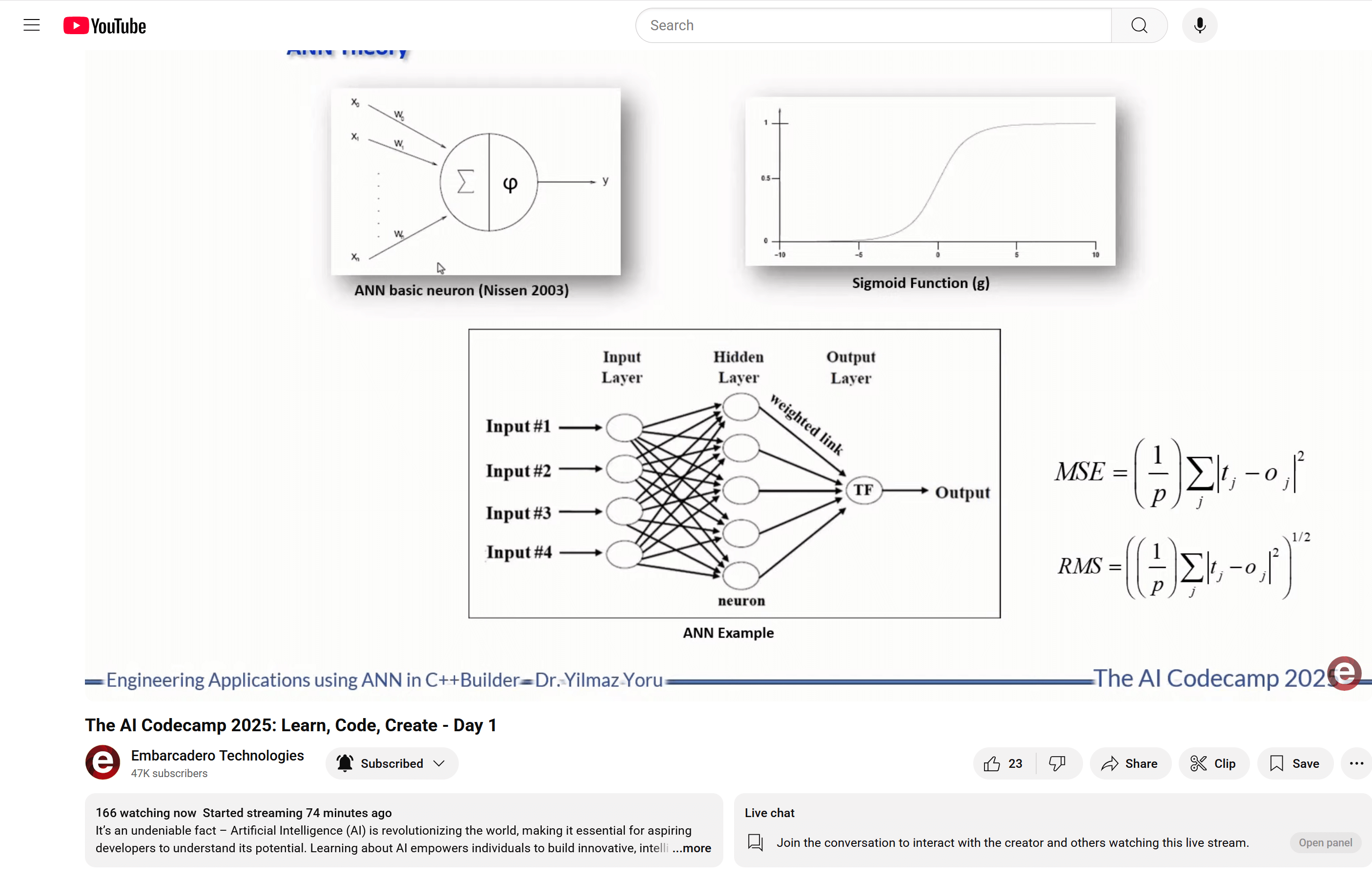
Dr. Yilmaz Yörü with a deep dive into engineering and math.
⚙️ Session 2: Engineering with ANN in C++Builder
A rapid-fire session from a Turkish presenter delved into the use of Artificial Neural Networks (ANN) in engineering, especially with C++Builder.
Highlights:
- Dense slide decks covered AI theory, singularity models, and deep learning architectures like CNNs, GANs, and RNNs.
- Real-world use cases included gas turbines and a digital assistant system, though these were difficult to follow due to pacing.
- The session leaned heavily on mathematical formalisms—insightful for advanced users but inaccessible for novices.
- Python was dismissed as too slow for performance-heavy tasks, while C++ received strong endorsement.
This presentation seemed more suited for a research colloquium than an instructional workshop.
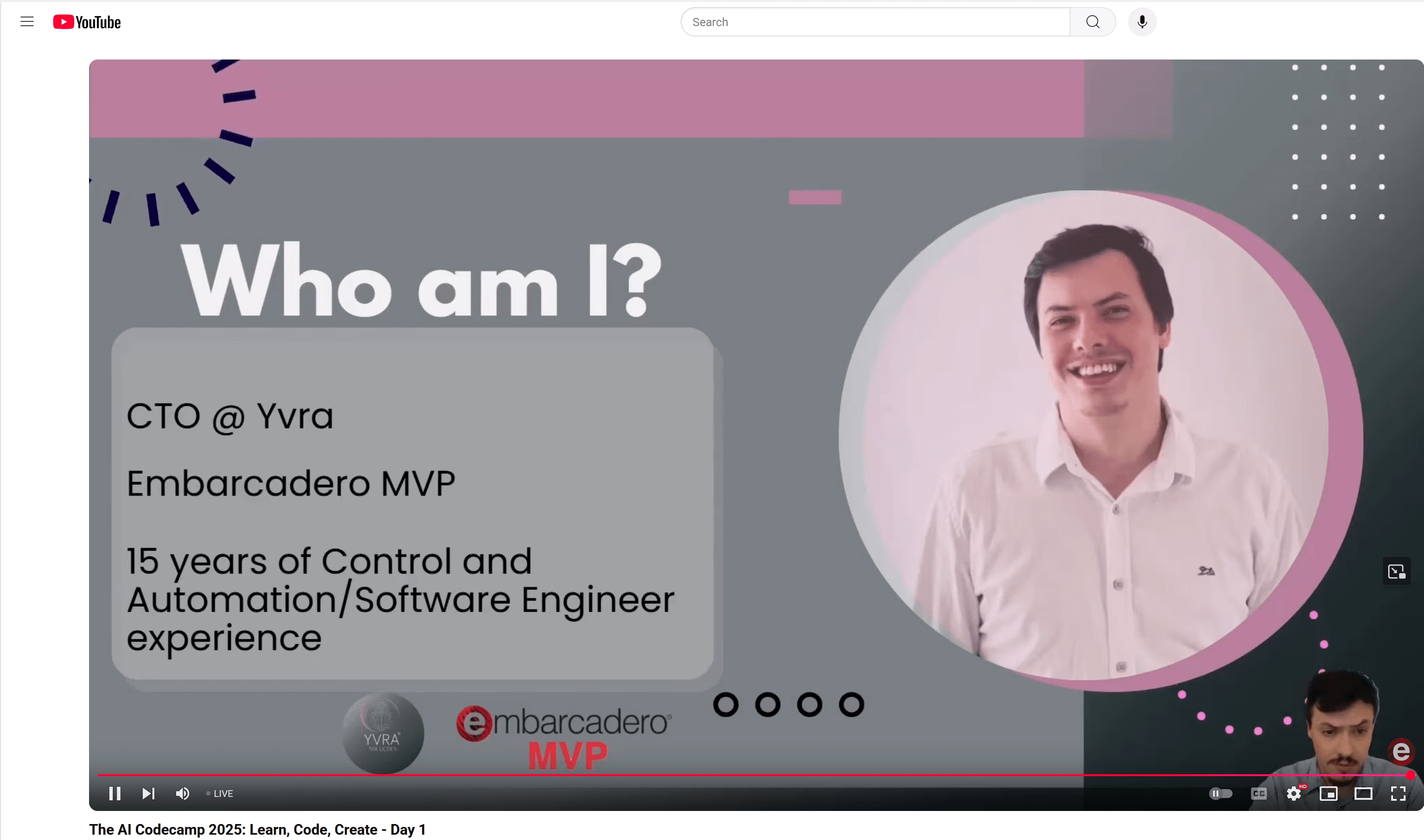
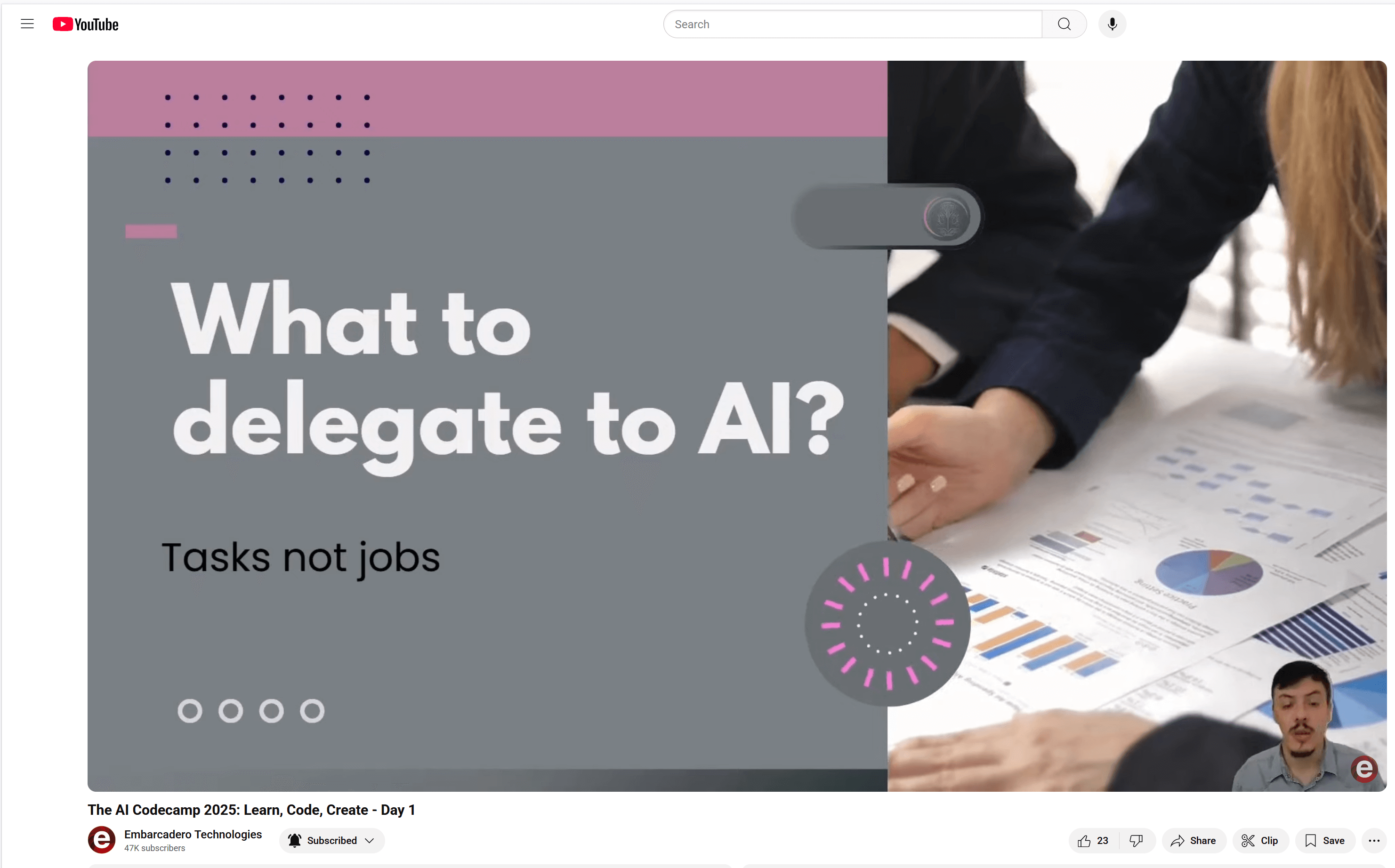
Dion from YVRA AI provided a wealth of practical advice about choosing, developing and deploying AI.
🔧 Session 3: Practical Guidance on Using AI as a Tool
A standout presentation came from Dion of YVRA AI (Brazil), offering a more grounded discussion of how to effectively deploy AI in real-world settings.
Key Insights:
- AI excels when applied to specific, well-scoped tasks, not as a replacement for jobs.
- Human collaboration is essential—AI is not clairvoyant and needs meaningful context and quality metrics.
- For startups, using cloud credits and established platforms can offer a quicker, more scalable entry into AI.
- The focus was on strategic framing rather than technical depth, making it especially useful for project leads and decision-makers.
Dion’s polished delivery and practical framing earned high marks, despite moments where the talk felt like a company promo.
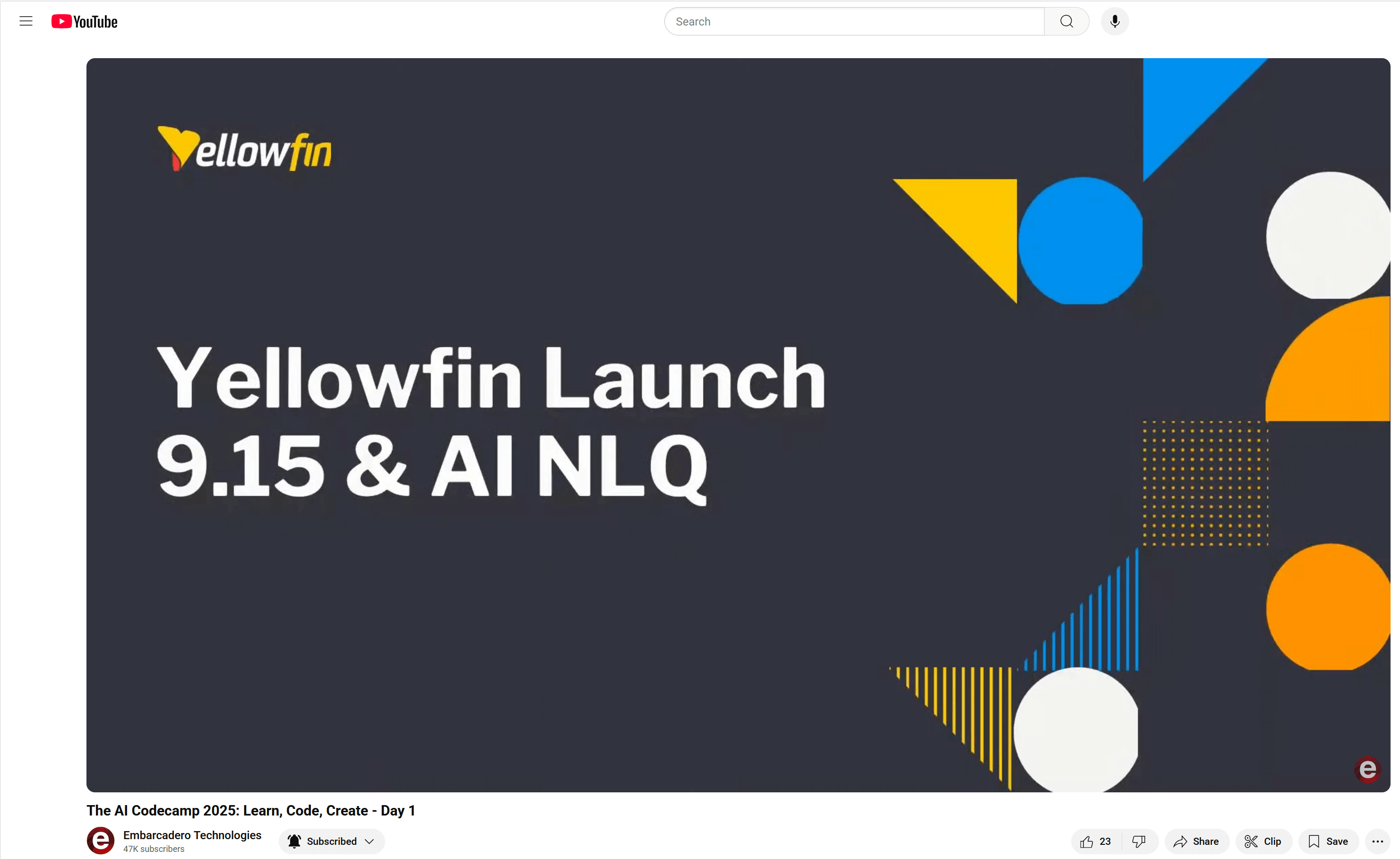
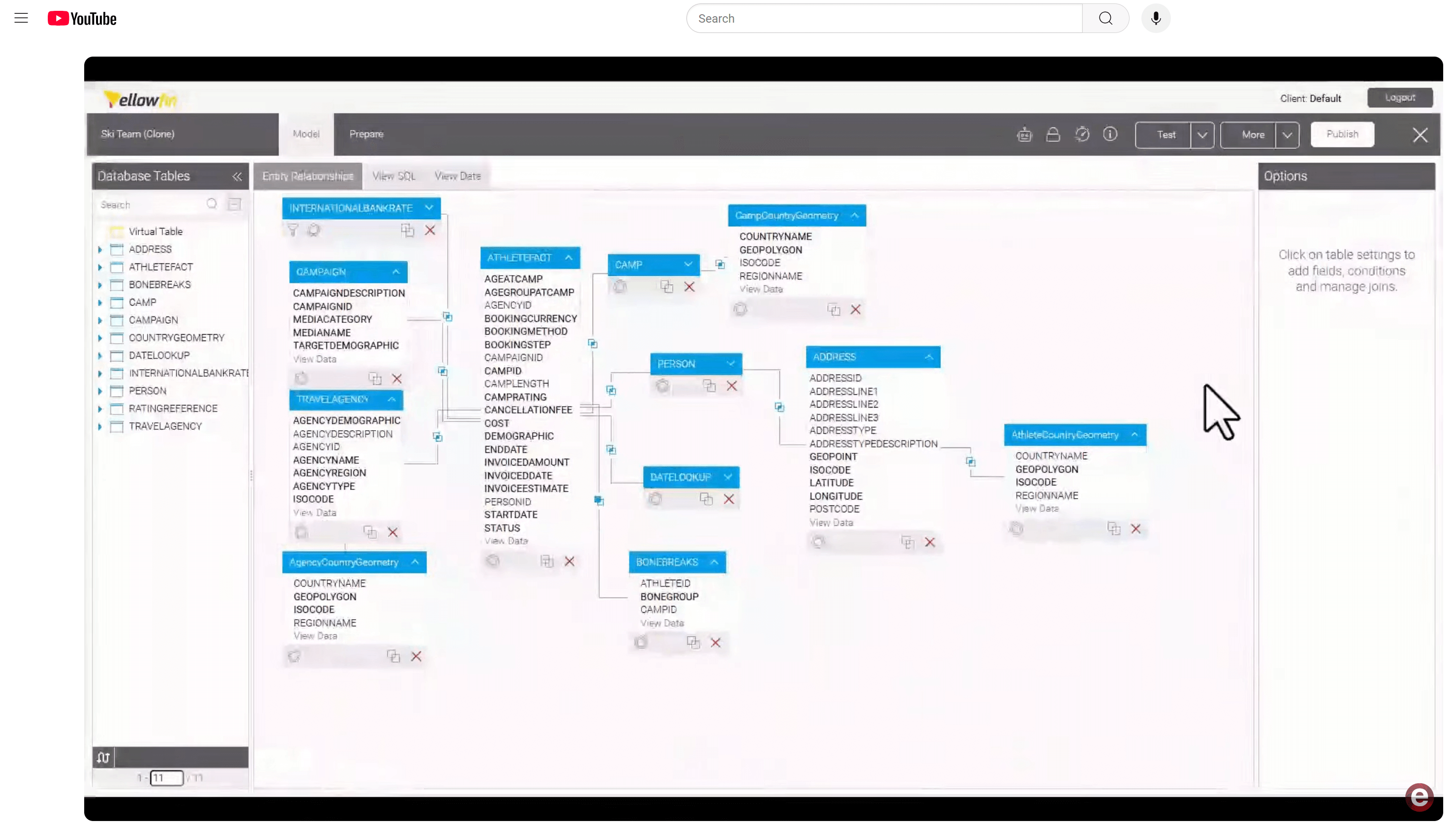
An example of how AI was used to make significant enhancements to an established product.
📊 Session 4: Ask Your Data Anything with Yellowfin
Yellowfin's Srujana Yarlagadda presented a compelling use case of AI enhancing an existing dashboard product.
Key Features Demonstrated:
- Natural language query generation, both manual and AI-assisted.
- Local data privacy: only query text is transmitted to the cloud, not the data itself.
- Strong support for multilingual interaction and iterative refinement of queries.
- The AI functionality is tightly integrated with Yellowfin’s existing data model, which handles access control and security.
The demo was arguably the most practically applicable segment of the day, showcasing AI as a value-add rather than a disruption.
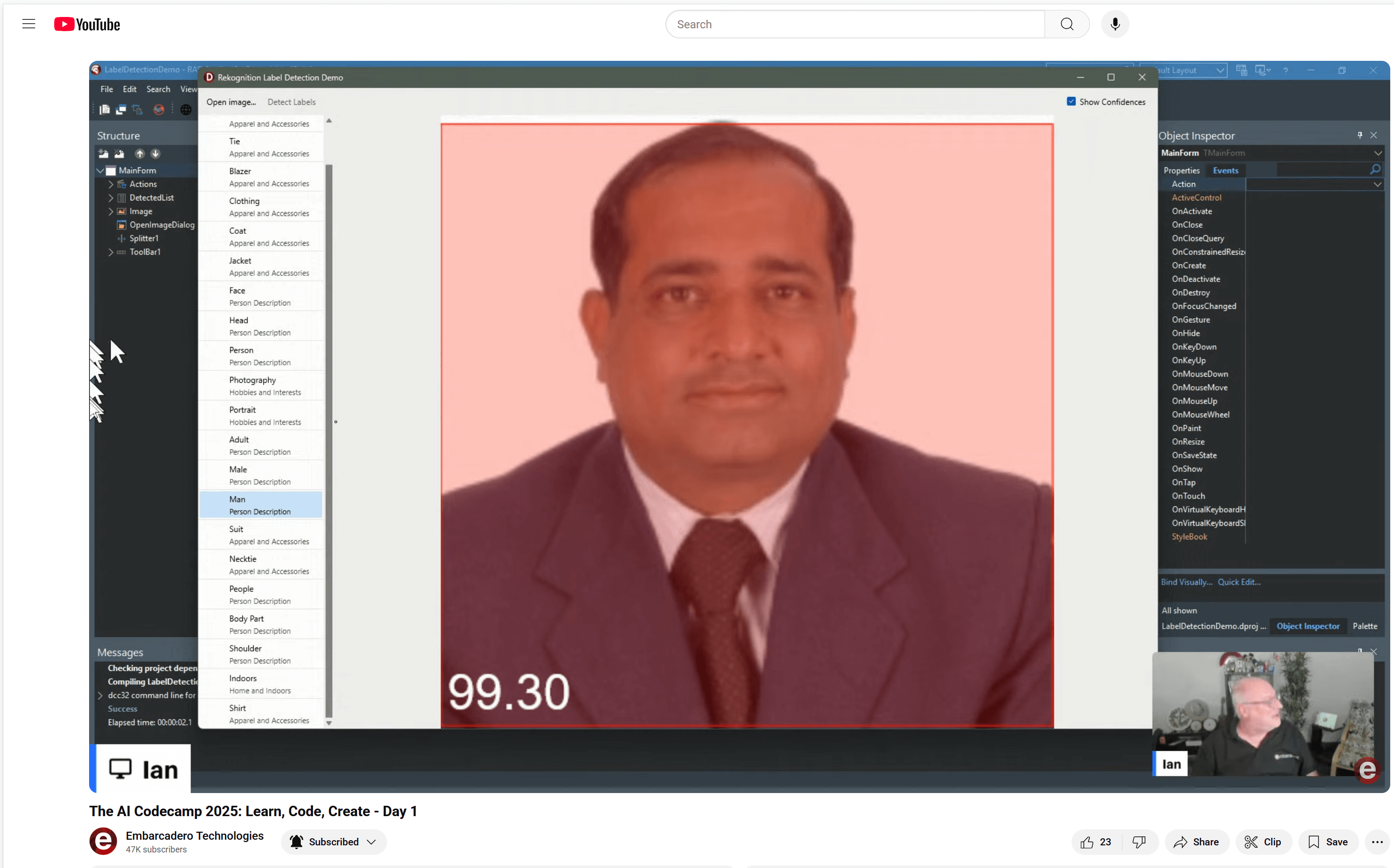
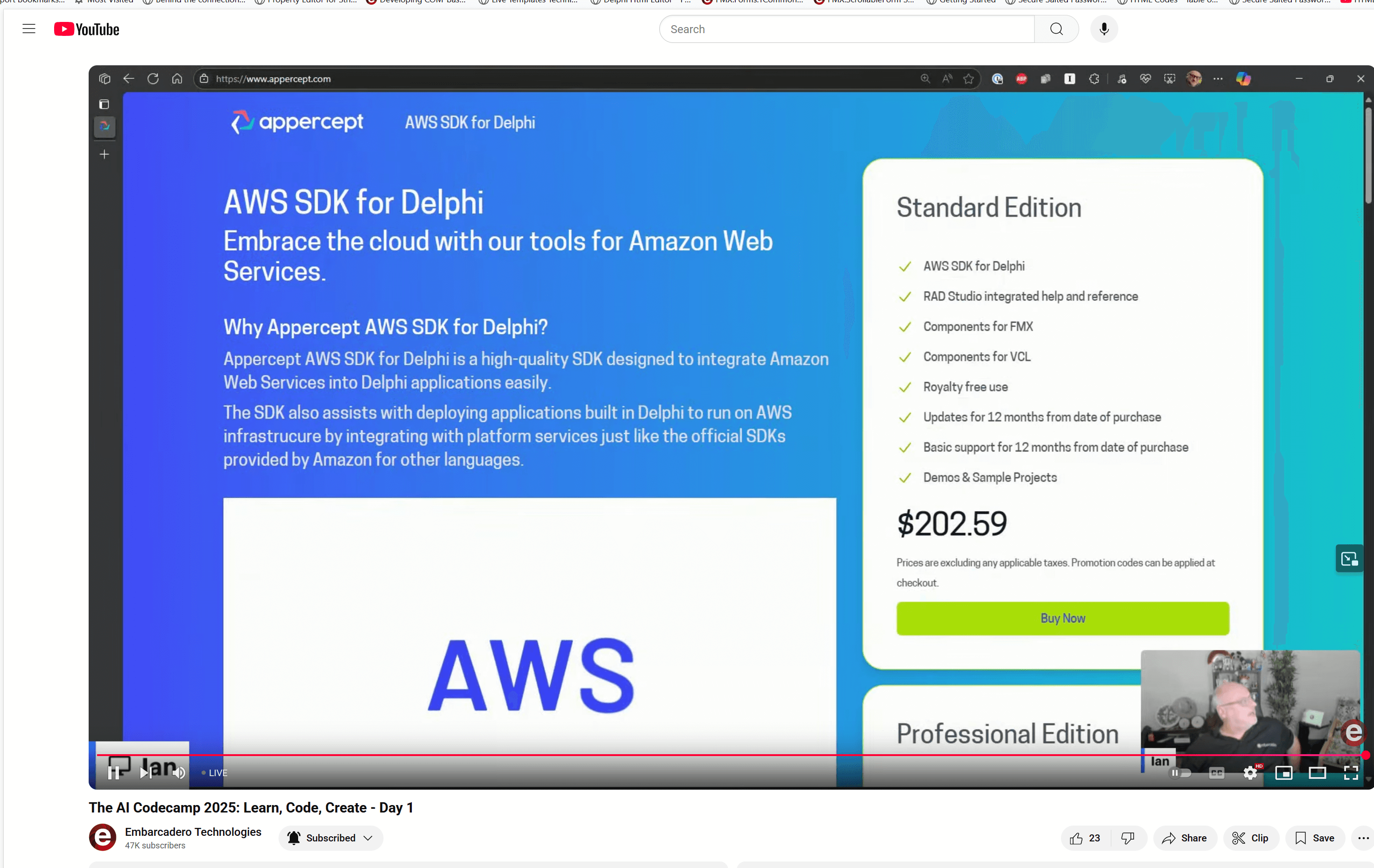
Ian Barker's playful look at Sunir Kumar Aurora in an AI object locator. The AWS SDK for Delphi offers significant programming power.
🛠️ Session 5: “Recreate a Trillion-Dollar Company’s AI Tool on Your Lunch Break”
In a clickbait-titled session, Ian Barker showcased a mock version of Google Translate built using Delphi Web Broker.
Demo Summary:
- The app interface was sketched with AI help (Gemini), but hand-assembled using Web Stencils and Bootstrap.
- AWS Translate powered the backend translation—not AI developed in-house.
- A second demo involved an image recognition app that correctly identified various objects in photos, including pets and produce.
Critique:
- While the tools used are notable (e.g., WebBroker, GetIt SDK, AWS integrations), the presentation's pace and code navigation made learning difficult.
- The talk drifted from its AI focus into a tangle of spaghetti code and hasty UI design.
Despite this, Barker’s demos provided useful exposure to available tools and packages for Delphi developers exploring AI integration.
🎯 Final Thoughts
Day One of CodeCamp revealed both the promise and pitfalls of AI in the Embarcadero ecosystem.
- Presentations ranged from high-level thought pieces to ultra-specific demos.
- The most valuable sessions provided concrete, real-world applications where AI served as a focused enhancer, not a vague aspiration.
- Some presentations faltered in pacing and clarity, underscoring the importance of production quality in educational content.
For developers, project managers, and strategists alike, today served as a reminder: AI is here to stay—but using it well requires both critical thinking and clear goals.
